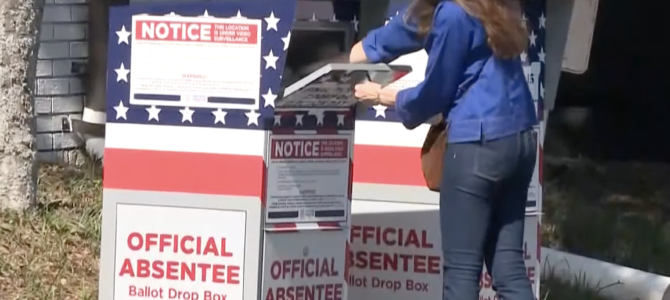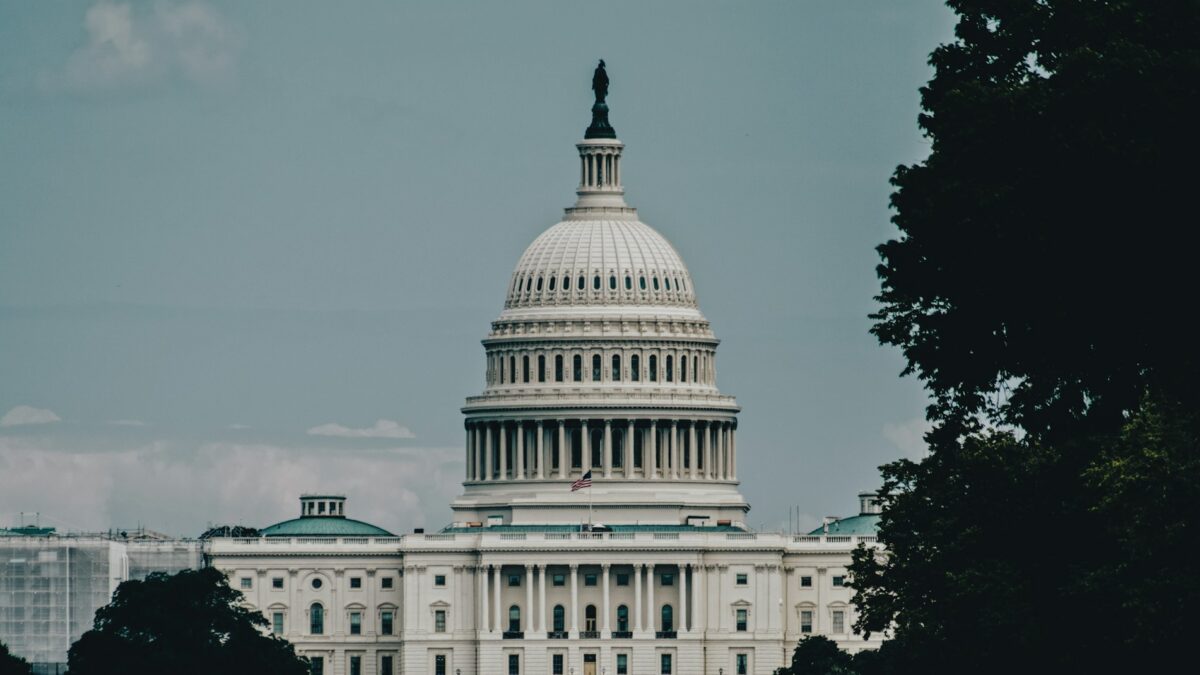
New evidence indicates that more than 10,300 illegal votes were cast in Georgia in the November 2020 general election — a number that will continue to rise over the next several months, potentially exceeding the 11,779 votes that separated Joe Biden and Donald Trump.
While this evidence does not change the fact that Joe Biden is our president, all Americans who genuinely care about free and fair elections and the disenfranchisement of voters should demand both transparency and solutions to prevent a repeat in future elections. This evidence also vindicates former President Trump and his legal team for the related public (and private) comments and legal arguments made in challenging the Georgia election results.
Under the cover of COVID-19, Georgia, like many other states, flooded residents with absentee ballot applications. Also like sister states, Georgia ignored various legislative mandates designed to prevent fraud and to ensure the integrity of the vote. These facts, coupled with the closeness of the presidential contest in Georgia and other states, led to a flurry of accusations and litigation charging vote fraud, illegal voting, and violations of the Elector’s Clause of the constitution.
In Georgia, there was both an audit and a statewide recount confirming Biden’s victory, but ignored in the process was evidence that nearly 35,000 Georgians had potentially voted illegally.
Under Georgia law, residents must vote in the county in which they reside, unless they changed their residence within 30 days of the election. As Jake Evans, a well-known Atlanta election lawyer, told me, outside of the 30-day grace period, if people vote in a county in which they no longer reside, “Their vote in that county would be illegal.”
Soon after the November general election, Mark Davis, the president of Data Productions Inc. and an expert in voter data analytics and residency issues, obtained data from the National Change of Address (NCOA) database that identified Georgia residents who had confirmed moves with the U.S. Postal Service. After excluding moves with effective dates within 30 days of the general election, and by using data available from the Georgia Secretary of State’s Office, Davis identified nearly 35,000 Georgia voters who indicated they had moved from one Georgia county to another, but then voted in the 2020 general election in the county from which they had moved.
Casting Doubt on Potential Illegal Votes
Some of those moves could have been temporary, involving students or members of the military, Davis stressed, adding that under Georgia law temporary relocations do not alter citizens’ residency status or render their votes illegal. But, given the margin separating the two presidential candidates, approximately one-third of the votes at issue could have altered the outcome of the election. Yet the media, the courts, and the Secretary of State’s Office ignored or downplayed the issue.
“It was disconcerting to see the media and the courts largely ignore serious issues like these, especially since the data I was seeing showed very legitimate issues,” Davis said. “In fact, I heard members of the Secretary of State’s team admit some votes were cast with residency issues, but then claimed there weren’t enough of them to cast the outcome of the election in doubt,” Davis added. “That was not at all what I was seeing, and as far as I am aware the Secretary of State’s Office has never put an actual number on the ones they did see.”
While frustrated, Davis told me that he never stopped working on these issues. “In May I received an updated voter database from the Secretary of State’s office, and I imported the data and compared voter’s addresses to the NCOA information I processed in November.”
The Data Speaks for Itself
When Davis ran the data, he found that, of the approximately 35,000 Georgians who indicated they had moved from one county to another county more than 30 days before the November general election, as of May, more than 10,300 had updated their voter registration information, providing the secretary of state the exact address they had previously provided to the USPS. Those same 10,000-plus individuals all also cast ballots in the county in which they had previously lived.
“That number continues to increase every day as more and more people update their registrations,” Davis said. “I have little doubt that the total number will eventually meet and then exceed President Biden’s margin of victory in Georgia.” Davis, who has testified as an expert witness multiple times in disputed election cases, believes Trump might have won a challenge to the Georgia election results had a court actually heard his case.
“Under Georgia law, a judge can order an election be redone if he or she sees there were enough illegal, irregular, or improperly rejected votes to cast the results of the election in doubt, or if they see evidence of ‘systemic irregularities,’” Davis said.
“These issues were absolutely systemic,” Davis stressed, noting “they occurred in every county in the state, in every state house, state senate, and in every congressional district in the state.”
Evans, who holds the distinction of being the only lawyer in Georgia history to successfully overturn two elections in the same race, concurred. Under Georgia law, Evans explained, “an election should be overturned either if (1) more votes than decided the election were illegal, wrongfully rejected or irregular, or (2) when there were systemic irregularities that cast in doubt the results of the election.”
“In the case of the 2020 general election,” Evans told me, Davis’s analysis indicates both factors could have been in play.
Davis’s data proves significant because critics of Trump’s challenge to the certification of Georgia’s election results framed the NCOA information as either unreliable or of an insufficient magnitude to cast the outcome of the election in doubt. But by updating their voter registration information with the same address as contained in the NCOA database, the voters themselves have established the reliability of that information.
Further, by updating their address for purposes of their voter registration, these same voters are confirming their move is not temporary. “When a person updates their voter registration to a new address, they are informing the county board of elections and correspondingly the Secretary of State that they regard the new address as their legal residence,” Evans explained.
What Do Georgia Officials Know?
Upon learning of this new development, the Georgia Secretary of State’s Office quietly opened an investigation into potentially illegal voting by residents who had moved between counties. Davis provided his data to the office in May, with a detailed explanation of his analysis.
During my interview last week with Georgia Secretary of State Brad Raffensperger, there was confusion over which, of the many investigations opened by his office, I had sought further information. Immediately following the interview, both his press secretary, Walter Jones, and his deputy secretary of state, Jordan Fuchs, called me back to follow up on my questions on the status of that investigation.
While Jones spoke favorably of Davis, he suggested that Davis’ figure included “false-positives” because Davis lacked access to social security numbers and birth dates of voters, and thus Davis’ list likely included different individuals bearing the same name. Fuchs suggested a similar issue with Davis’ analysis.
“There is no need to have access to Social Security numbers or birth dates,” Davis told me. “Every voter has a unique eight-digit voter identification number,” Davis explained that these voter identification numbers tie to the voters’ names and addresses and to vote-history data, which documents when and where their votes are cast and comes from the secretary of state’s own data.
Davis provided access to that data, following the execution of a non-disclosure agreement, and I confirmed Davis’s representation. Davis also provided processing certification verifying receipt of the NCOA data.
“I provided this exact same information to Frances Watson, the chief investigator for the secretary of state,” Davis told me, sharing a copy of the email sent to Watson.
When asked for the status of Watson’s investigation and other details, while both were receptive to questions, neither Jones nor Fuchs could provide definitive answers. While on Friday Fuchs promised to give Watson permission to speak with me, and while both the deputy secretary of state and the press secretary promised to arrange an interview with Watson and to track down answers to several questions, to date, no further information has been provided and no interview has been arranged, notwithstanding several follow-up communications.
Hopefully, that is because Watson is busy investigating the strong evidence of illegal voting and not because the Secretary of State’s Office is attempting to bury the story — and the fact that Trump might have been right after all — until after Raffensperger fights off a primary challenge.
Clarification: This original article stated, “Yet during my interview last week with Georgia Secretary of State Brad Raffensperger, he seemed unfamiliar with this most recent evidence of illegal voting.”
Since publication, Georgia Secretary of State Brad Raffensperger’s office confirmed he is aware of the latest in the investigation, and that during his interview he was responding to questions posed about out-of-precinct voting.
Correction: The article originally indicated 12,670 votes separated Joe Biden and Donald Trump, but following an audit, that margin was reduced to 11,779.









